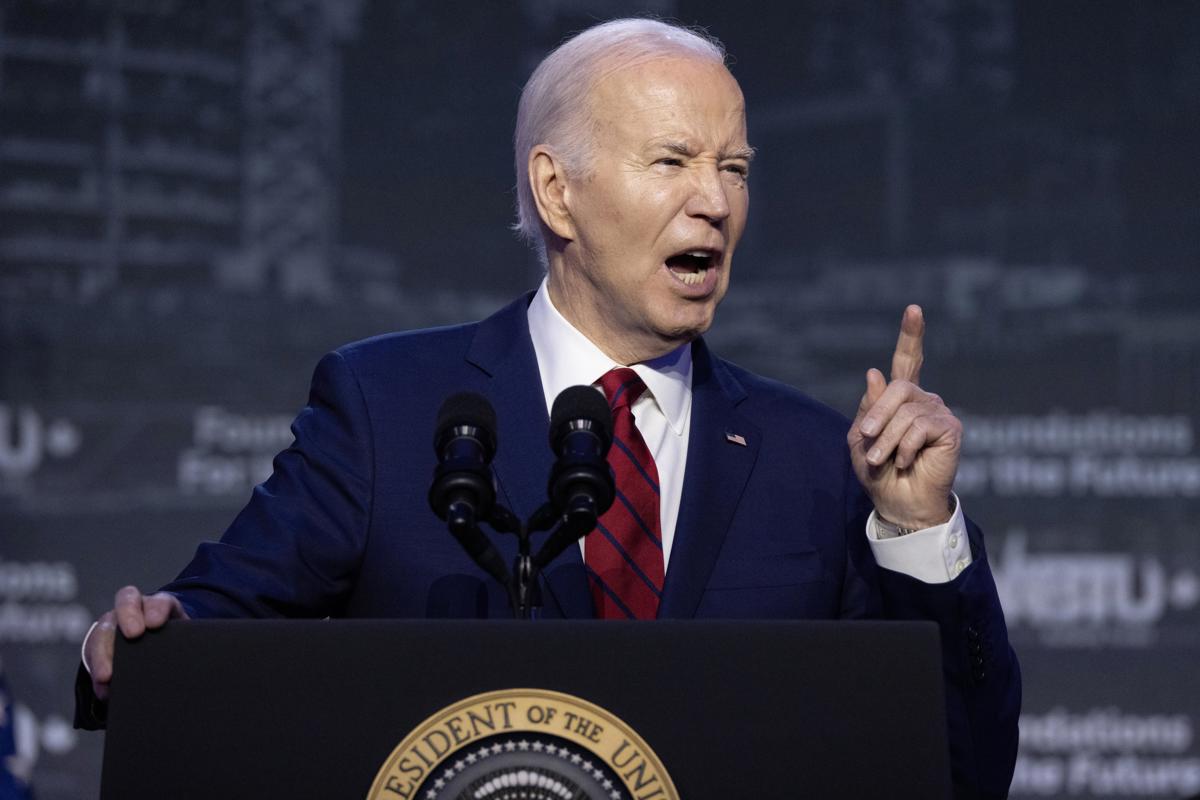By Beatriz Pascual Macias
Washington, May 4 (EFE).- With 30 deaths and 6,300 workers infected with the coronavirus, US meat processing plants are one of the foci of the pandemic, where employees like Jesus don’t have time to cover their mouth when they sneeze for fear of being disciplined if they miss cutting or deboning a chunk of meat on the ever-full and ever-moving assembly lines.
“People are complaining because the lines go very fast and they’ve filled up even more. Before, you had two turkeys and then a gap, two turkeys then a gap, but now it’s completely full,” Jesus, a Hispanic man who asked that a false name be used for him for fear of reprisals, told EFE by telephone.
There are complaints that his employer, West Liberty Foods, which specializes in turkey processing, had not given facemasks to the workers until the first two cases of coronavirus appeared in early March and managers are said to have asked that workers bring their own soap and hand sanitizer from home with which to disinfect themselves.
On March 7, Jesus went home sick: “I left that company with a high fever, headache, sore throat, body aches and even spitting blood,” he said.
He tested negative for the coronavirus, but he’s worried because his wife and his two kids have all had fevers and dry coughs for days and so he’s taking care of his 1-year-old grandson, the only family member who hasn’t showed any symptoms and whose voice could be heard every now and then during the phone conversation.
Jesus’ situation is not unique, since the US meat processing industry – which is almost an oligopoly – for weeks has been ignoring any safety recommendations and forcing its workers to continue chopping up chicken, pork and veal “side by side” without any safety distance between line workers, according to what four employees told EFE.
The four, who all asked that pseudonyms be used for their names, said that the already tough working conditions at the plant have worsened since the virus broke out. Production requirements have been stepped up, workers are denied permission to use the bathroom and the speed of the meat processing assembly lines has been increased.
The plants have become the perfect breeding ground for the coronavirus, which once it infects a few workers expands rapidly throughout any given plant, as per the case of the Smithfield plant in South Dakota with more than 500 confirmed Covid-19 cases, a facility that has made that state a new infection hotspot.
In March alone, President Donald Trump authorized allowing 15 poultry processing plants to speed up their assembly lines to process more chickens per minute, despite the fact that groups like Human Rights Watch were warning that doing so could increase the risk that workers could suffer burns or get their fingers chopped off.
In addition, Trump issued a decree obligating the meat industry to continue working, which is more and more difficult because of the large numbers of employees who have become infected with the virus.
At the West Liberty, Iowa, turkey processing plant 71 people have become infected, a company spokesman told EFE, although he denied that production lines have been speeded up and added that plastic panels are being installed between line workers to avoid direct contact among them.
According to the Washington-based Center for Economic and Policy Research, 51.5 percent of workers in the meat industry are immigrants because they are the only people who are willing to take jobs that are so physically demanding.
The plants are normally located in rural, traditionally more conservative areas where English is the language used for official communications, and some of the workers told EFE that they have not been able to get information in Spanish, for instance, about the pandemic or about economic aid to which they may be entitled.
In addition, some of the workers are undocumented and are in possession of forged papers that have allowed them to work, a situation that the company usually ignores, according to Alejandro (a pseudonym), who has worked at a Kentucky plant for 12 years.
Alejandro is a Mexican and is petrified by the idea that he might bring the virus home and infect one of his children who is disabled and has a very weak immune system.
“Here at the plant they don’t care about either us or our families. They only care about not stopping production and for the hogs to (be processed) faster and faster,” he said.
With the coronavirus, unions and organizations like the National Employment Law Project (NELP) have complained that the Trump administration has weakened the few regulations that exist to guarantee the health and safety of workers in the meat processing industry.
The president has prioritized ensuring the meat supply and last week issued an order forcing companies to continue operating, although many have been forced to close because the workers are sick or are absent because they don’t feel safe, Deborah Berkowitz, who is now with NELP and has worked for 40 years to ensure employee safety in the meat industry.
Berkowitz said that Trump doesn’t care if the workers “get sick or die” and his only priority is to gain the support of the companies and guarantee that “the profits keep flowing.”
The two biggest meat processing firms in the US, JBS USA and Tyson Foods, increased their profits in 2019, jointly taking in $12.678 billion.
Simultaneously, the US is the top meat-consuming nation in the world on a per capita basis – with each American consuming about 120 kilograms (264 pounds) per year – according to the United Nations Food and Agricultural Organization.






